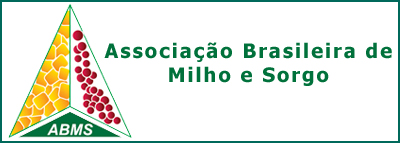CHEMICAL RESPONSE OF MAIZE PLANTS WITH RESISTANCE TO FALL ARMYWORM FEEDING DAMAGE
DOI:
https://doi.org/10.18512/1980-6477/rbms.v13n3p249-260Palavras-chave:
HPLC, deterrent, Zea mays, Spodoptera frugiperdaResumo
This work aimed at verifying the chemical response to Spodotera frugiperda associated to some selected genotypes resistant to this fall armyworm, subsidizing studies for improving commercial cultivars. Genotypes were grown and divided into two groups: a group was infested with S. frugiperda and another group was not infested (control). Extracts from plants of both groups were prepared and their chromatographic profiles were obtained by high performance liquid chromatography. Chlorogenic acid, described in the literature as a natural metabolite with food deterrent activity, was identified in some extracts by comparison with the authentic standard and, later, by mass spectrometry. The chromatograms obtained were classified using chemometric methods. The majority of the genotypes studied showed reduction in the concentration of chlorogenic acid when they were infested by the insect. In addition, extracts of some infested plants showed good activity against S. frugiperda, indicating the synthesis of one or more bioactive substances. This change in the metabolic profile was evidenced by statistical analysis, where pairs of control infested genotypes were distinct from each other. The results point that interaction between insect and plant impacted on the production of metabolites by the plant.
Downloads
Publicado
Como Citar
Edição
Seção
Licença
Autores que publicam nesta revista concordam com os seguintes termos:- Autores mantém os direitos autorais e concedem à revista o direito de primeira publicação, com o trabalho simultaneamente licenciado sob a Creative Commons Attribution License que permitindo o compartilhamento do trabalho com reconhecimento da autoria do trabalho e publicação inicial nesta revista.
- Autores têm autorização para assumir contratos adicionais separadamente, para distribuição não-exclusiva da versão do trabalho publicada nesta revista (ex.: publicar em repositório institucional ou como capítulo de livro), com reconhecimento de autoria e publicação inicial nesta revista.
- Autores têm permissão e são estimulados a publicar e distribuir seu trabalho online (ex.: em repositórios institucionais ou na sua página pessoal) a qualquer ponto antes ou durante o processo editorial, já que isso pode gerar alterações produtivas, bem como aumentar o impacto e a citação do trabalho publicado



